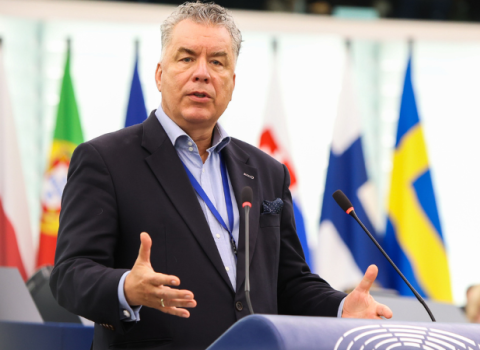Climate change, entrepreneurship, the brain drain – these are among the issues that may get renewed attention in the European Parliament, based on a Science|Business review of the candidates to become next President of the Parliament.
On Tuesday, the 751 members of the European Parliament will cast secret ballots to elect a new president to succeed Martin Schultz, a German socialist who is returning to domestic politics. The decision will turn on pure power politics, as seven candidates vie for the top job. But to see how research and innovation might be affected, Science|Business reviewed the candidates’ past positions on the topic and invited them to issue new statements.
One is Antonio Tajani, an Italian MEP of the centre-right European People’s Party (EPP), who served for five years in the previous European Commission under President José Manuel Barroso – an administration with a very assertive vision for research and innovation – as head of industry and entrepreneurship. His interest in these topics remains and today he is active on the Parliament’s Industry, Research and Energy committee.
As president, Tajani told Science|Business he would advocate for a more tightly-focused set of research priorities.
“The EU’s Horizon 2020 research programme should be focused on fewer priorities, with more impact. Low carbon technologies, climate and the circular economy, as well as new digital and data technologies, should in my view be prioritised even more strongly than today,” he said.
Romanian MEP Laurenţiu Rebega, the candidate for the far-right Europe of Nations and Freedom Group, said he is concerned about brain drain to the US and the gap in earnings potential between member states. “It should be correctly understood that there is a gap not only between Europe and the US, but also between the EU members. In Romania, many young people who are interested in research choose to study and work in the [United] States. Europe seems less appealing for young people who wish to perform in innovative fields of studies,” he said.
Gianni Pittella, an Italian from the centre-right socialists and democrats (S&D) grouping has consistently supported climate change action and the Commission’s efforts to invest money in small business; his support for new investment vehicles is reliable. But while Pittella’s short manifesto says, “We must not be afraid of change” he falls short of suggesting any.
It is a similar story with former Belgian prime minister and federalist Guy Verhofstadt, for whom ‘More Europe’ is always a good thing.
Less easily pigeonholed are the candidates struggling to get a foothold in the leadership race.
Eleonora Forenza, with the far-left European United Left-Nordic Green Left Group; Jean Lambert of the Greens; and Helga Stevens, centre-right European Conservatives and Reformists group, have miniscule chances of success, and offer up few clues on how they feel about science.
From this bunch of outsiders, Forenza emerges as the most noticeable supporter of Horizon 2020 – that is as long as none of its funding goes to Israel, a country whose government her group has a strong aversion to. The Greens’ decision to put forward Lambert, a British politician, is eccentric, at a time when her country is leaving.
Crucial role
During his time in office, Schulz fought resourcefully to impose the Parliament’s voice in EU policy-making. His successor will inherit an expanded role in Brussels as a result, and be treated as a key player during several big, upcoming moments for the assembly.
First off, the Parliament is expected to play a crucial role in Brexit talks in the coming years since it must ratify any divorce agreement between the remaining 27 EU member states and the UK.
MEPs will also be in the thick of decision-making for the next budget cycle, starting in 2021, with a mountain of legislation to wage battle over, including the make-up of the new research programme, Framework Programme 9.
Science and research apart, the candidates’ overall pitches are not putting forward imaginative or even concrete ideas, but familiar, abstract principles.
The two front runners, Pittella and Tajani have revealed little about their reasons for wanting the job. Pitella’s manifesto is very short on substance, while although he delivered the longest response to Science|Business, Tajani, an experienced Brussels policymaker, has not published a general manifesto.
Of the other candidates, Verhofstadt, the Parliament’s closest thing to a rhetorical all-star, lead Brexit negotiator and leader of the liberal ALDE grouping, can usually be relied upon to give a fresh injection of espresso-shot energy and purpose to the EU. This time however, little of the Belgian’s spirit transfers to his manifesto, which talks about gaining more bargaining power for the Parliament with the other EU bodies – a common ambition of all candidates – but falls short of suggesting anything new.
Oddly distant in the contest is any attempt from the candidates to grapple with the year’s biggest issues. Immigration, trade, the job-stealing threat of artificial intelligence and the frighteningly irreversible effects of climate change are not receiving a proper airing. The candidates have only faced off against each other once, at a debate organised by Politico last week.




 A unique international forum for public research organisations and companies to connect their external engagement with strategic interests around their R&D system.
A unique international forum for public research organisations and companies to connect their external engagement with strategic interests around their R&D system.